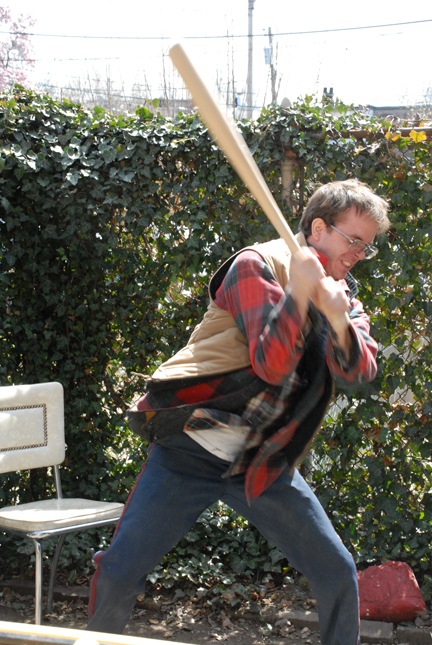Michael Kimball Guest Lecture #5: Language and Sentences
 We are writers. Writers use language. There are lots of things we can do with language. As Robert Lopez says: “I always start with language.” And when he says that, he means his language, his particular language, and that every writer should have their own particular language. Raymond Carver gets at that with this (from “On Writing”): “It’s akin to style, what I’m talking about, but it isn’t style alone. It is the writer’s particular and unmistakable signature on everything he writes. It is his world and no other. This is one of the things that distinguishes one writer from another.”
We are writers. Writers use language. There are lots of things we can do with language. As Robert Lopez says: “I always start with language.” And when he says that, he means his language, his particular language, and that every writer should have their own particular language. Raymond Carver gets at that with this (from “On Writing”): “It’s akin to style, what I’m talking about, but it isn’t style alone. It is the writer’s particular and unmistakable signature on everything he writes. It is his world and no other. This is one of the things that distinguishes one writer from another.”
When I think of language, I think of sentences. As John Banville says: “The sentence is the greatest human invention of civilization.” There are lots of things that we can do with a sentence. We can manipulate the syntax, the diction, the stresses, the tenses, the acoustics, the morphemes and the phonemes, syllables and prefixes and suffixes, the speed, and the length. As Andy Devine says: “The English sentence – because of English syntax – is infinitely expandable.”
We can manipulate objects, subjects, predicates, infinitives, participles, gerunds, phrases, clauses, and determiners. We can manipulate articles, nouns, verbs, adjectives, adverbs, conjunctions, and prepositions. Joseph Young says: “Articles propel the sentence, push it off and keep it moving.” Stephen King says: “The road to hell is paved with adverbs.” Joseph Brodsky says: “Don’t use too many adjectives.” Andy Devine says: “Adjectives are not as bad as adverbs.”
For instance, I like to structure sentences around articles and conjunctions and prepositions—the more perennial parts of language—so that my narrator has a singular way to speak. And I like to move prepositions to the end of the phrase or the end of the sentence. That was one of the first sentence things that I figured out for myself. It’s not what we’re taught to do, but it is still quite obviously English, and it creates a kind of semantic link in the sentence—and this vaguely unsettling feeling.
